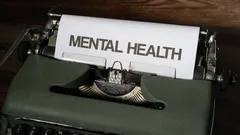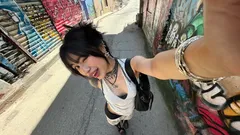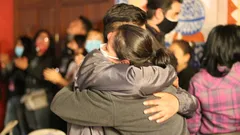
We all want to believe that our friends are there for us. However, there are times when doubts start to creep in, particularly when a friend begins acting oddly. What happens if you think your gut is right and they're chatting about you even though you're not there? I decided to discover the signs that tell you something is happening that are based on the insights of psychology.
Unusual Distance: The Silent Signal
Friendships change over time. But if your once-close mate suddenly withdraws without explanation, it raises eyebrows and doubts. Psychologists suggest that the sudden change in their emotional state could suggest they're hiding something, maybe speaking in your face. Text messages that were once frequent are now rare. Jokes shared with friends disappear. That awkwardness? It's the first sign that something could be a bit off.

Confiding Less, Listening More
One sign that is obvious is when they cease telling their stories, but appear to be interested in your life, possibly to create gossip. If your friend seems unfocused or doesn't respond to direct questions, this mental shift in their behavior may reveal more than any words could.
"It's like the warmth in our chats slowly faded," says a 21-year-old girl I talked to, "and suddenly everything I said seemed to be met with less enthusiasm."
Subtle Put-Downs and Changing Social Circles
If people you used to trust make small, sarcastic remarks into conversations, it's worth noting. Innocuous remarks, such as a joke to your advantage in front of your friends—can be ways to push boundaries or vent their unspoken anger. It is painful, especially when your friends begin to act distant and distant, too. This is usually a subtle indication from psychological perspectives on friendship that someone could be harming your reputation within your circle of friends.
Group Dynamics Shift
Have you ever been to an evening gathering and feel tension or see people chatting after you've spoken? Inconspicuous clues like jokes that you're not part of or being omitted of group discussions—signify something is going on behind the back of the scenes. It's easy to be worried however, these changes are, as experts agree, typically suggest there's gossip on the horizon.
Checklist: How to Spot a Toxic Friend
- They are emotionally withdrawn and communicate less often
- They are less open and avoid personal concerns
- You can detect subtle sarcasm or insults
- Others friends behave strangely or keep secrets
- The group conversations can feel tense, or even excluding
What Psychology Really Says
Feeling skepticized by a friend's shift in behavior can be a challenge. According to a majority of friends psychology research, the most beneficial option is to use honest, respectful communication. Refusing to believe in rumors or gently voicing your concerns will often sway the conversation or verify your suspicions. In either case, facing the truth gives you control over the social scene as well as confidence.
I've learned that spotting indicators of fake friendships is not about being suspicious instead, it's about appreciating and assessing the quality of real friendships in our lives. The moment of doubt you are experiencing isn't just a sign of paranoia Sometimes, it's just your intuition spotting the most important clues.
If you have to find out what I can do to know whether my friends are shady in my absence be sure to trust your gut and be aware of the indications. Friendships should be uplifting and not drag us down.
 Meg Magazine
Meg Magazine















Comments